

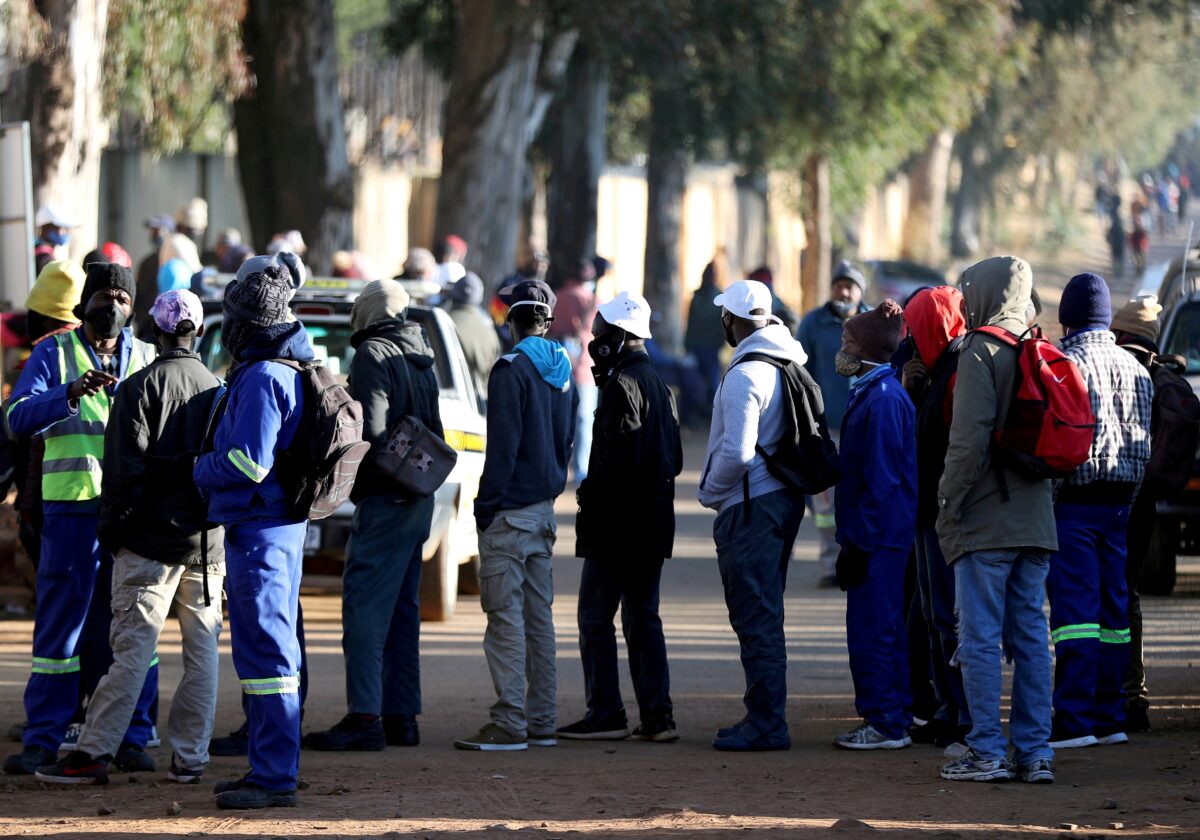
JOHANNESBURG—Political analysts and diplomats in South Africa say relations between the African National Congress (ANC) government and Washington are deteriorating, fast.
There’s currently a bill in the House of Representatives asking for a review of the Biden administration’s relations with South Africa, in light of the country’s recent military drills with Russia and China.
Now, the U.S. has warned of the possibility of “civil unrest” in South Africa, further angering President Cyril Ramaphosa’s administration.
Minister in the Presidency, Mondli Gungubele, says Pretoria’s engaging with Washington about the alert.
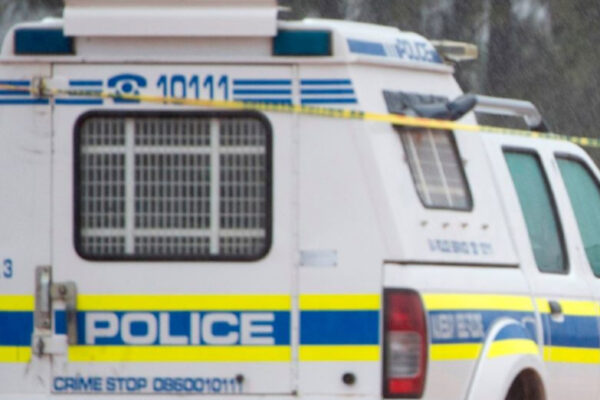
“We do not have any information to indicate there’s going to be any kind of civil unrest in our country. We will talk to our American partners because such alerts have the potential to cause serious problems in the country,” Gungubele told The Epoch Times.
But analysts, civil society groups, opposition parties, and business leaders say South Africa doesn’t need Washington to “create serious problems” in the country; its own government is doing that for them.
“The ANC has put us in big trouble,” said Zwelinzima Vavi, general secretary of the powerful Southern African Federation of Trade Unions, to which millions of workers are affiliated.
He told The Epoch Times: “We are now a failed state. There are few countries right now in a worse state than South Africa; only war zones, maybe.”
Once a staunch supporter of the ANC, Vavi said he is “fed-up” with decades of ruling party corruption, mismanagement, and incompetence.
“When you have 82 people dying in your country every single day, through violence; 135 women raped every single day; when people are being held up in their homes and robbed in broad daylight, and your criminal justice system’s no longer capable of responding because it’s dysfunctional; when police say only 11-percent of people accused of rape are ever convicted … Then your state’s no longer capable of defending its own citizens. It can’t even perform the most basic functions…”
As Vavi highlighted, South Africa has some of the worst crime numbers globally. Gangsters rule many communities.
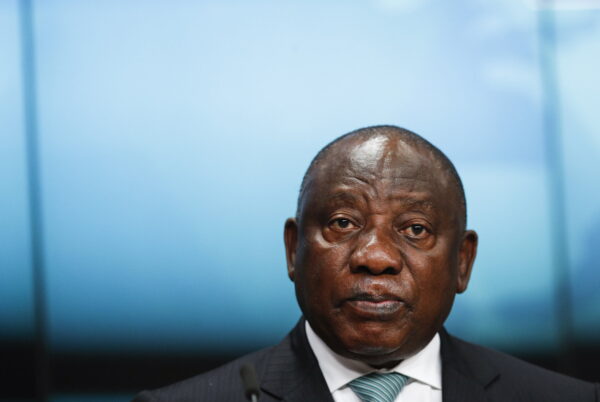
The cost of living is spiraling, yet the government continues to increase the prices of services it often cannot deliver, at the same time as its officials are implicated in corruption and other crimes. Long, daily electricity and water breakdowns are common.
The state itself has noted almost 11 million young people who should be working can’t find jobs, amid one of the highest official unemployment rates in the world at 35 percent.
These are the conditions creating the “extreme tension” in the country, said Vavi, not foreign governments or so-called “Third Forces” as the ANC has often claimed.
South Africa’s third-biggest political party, the ultra-leftist Economic Freedom Fighters (EFF), led by Julius Malema, is spearheading a national shutdown on 20th March.
Police minister Bheki Cele has warned protesters to “stay within the parameters of the law,” or they will face “the might of the state.”
Malema told The Epoch Times he and his party are unfazed.
“We’re not scared of state power. Let the state come with its power; we’ll come with mass power. There will be no school, no university, no factory, no bus, no taxi unless they’re taking protesters to the picket lines. South Africa will come to a standstill.”
Malema said he would lead a march of thousands of citizens to the government’s seat of power, the Union Buildings, in Pretoria.
“We’ll do this peacefully. It’s our right. Let them try to stop us. They will not. If they want to violate our rights, they’ll find us ready. No one’s going to intimidate us. If Ramaphosa doesn’t resign on March 20, then what will happen will be announced on March 20.”
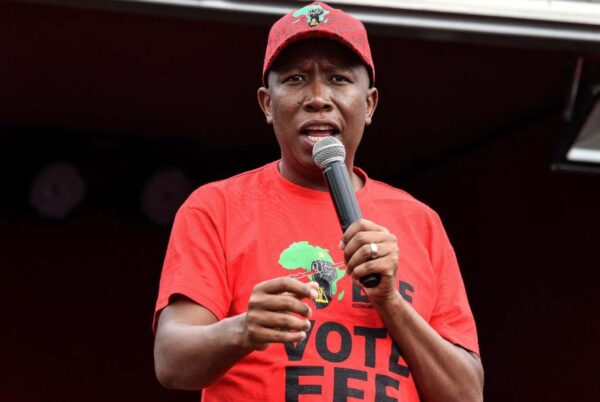
But it’s not only political firebrands like Malema, and the United States, warning of possible tumult in Africa’s second-largest and most industrialized economy.
CEO of Business Leadership South Africa, Busisiwe Mavuso, told a recent forum in Johannesburg that the country could face “mass action” similar to the “Arab Spring” demonstrations that toppled governments in Tunisia and Egypt in 2011.
She said she feared for the future unless the government begins delivering proper services, repairs broken infrastructure, ceases corruption, creates employment, and curbs crime.
Mavuso’s public criticism of the ANC is rare for South Africa’s business community, which usually meets behind closed doors to vent concerns with the ruling party.
But with profits declining rapidly, mostly because of ongoing power outages and a stagnant economic climate fomented by failed policies, top businesspeople are ignoring protocol and breaking ranks.
One of Africa’s richest individuals, investment banker Rob Hersov, recently participated in a march to the ANC’s headquarters Luthuli House in Johannesburg.
The son of a mining magnate returned to South Africa six years ago, after establishing businesses across the globe, and partnering with media tycoon Rupert Murdoch, among others.
During the protest, Hersov bellowed into a megaphone: “I’m standing here today because I’m not afraid of those criminals in Luthuli House, who have stolen your future! All South Africans, stand together and rid this country of the biggest disgrace on the African continent, the ANC!”
He then led the crowd in a chant: “ANC voetsek! Voetsek! Voetsek!”
“Voetsek” is a strong Afrikaans word meaning, “Go away!”
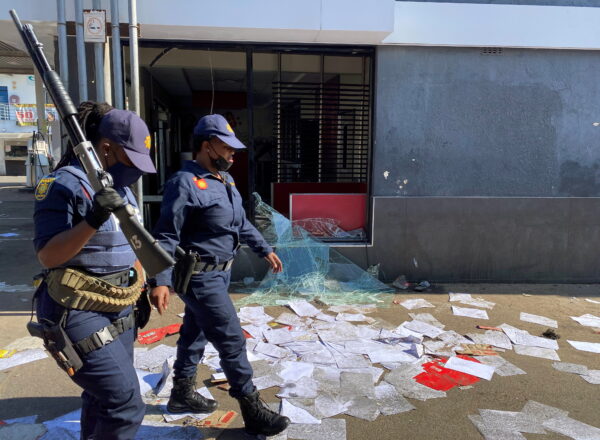
Hersov told The Epoch Times he’s “heartbroken” by what the ANC’s doing to his homeland, with services in cities and towns crumbling.
“I love this country; I love South Africa; I’m a patriot!” he declared. “I spent 31 years overseas. My New Zealand wife and I have decided we’re not leaving; we’re going to stay and help fix this country. But to do that, we all have to rid ourselves of the ANC.”
Hersov said criticism of Ramaphosa and the ANC is useful only when it’s backed by action and solutions.
So, he said, he’ll be doing his best leading into elections next year to convince people to “vote according to what they see in front of them.”
“I think the next phase of my life is to focus on helping South Africans by saying and doing what other South Africans can’t afford to say and do.”
Hersov said exercising democratic rights is the only path to “freedom from ANC hegemony.”
“It’s very easy to say, as most businessmen do in this country, ‘We do a lot of behind-the-scenes discussions; we work through councils and organizations; we have private meetings with Cyril Ramaphosa; he promises to do the right thing.’ It’s a complete waste of time!”
Instead of just talking and hoping for the best, said Hersov, he’ll be funding campaigns encouraging people to vote in about a year’s time. Successive elections in South Africa have resulted in record-low voter turnouts.
Hersov’s convinced the ANC’s panicking ahead of the 2024 elections because its corruption is obvious, and it’s the party that destroyed the national power regulator, Eskom. This infrastructure meltdown means Eskom’s forced to ration electricity through a process it calls load-shedding, which leaves South Africa in the dark for between four and 12 hours every day, and sometimes longer.
Hersov said he’s “sick” of the ANC’s failure to take any responsibility for the “giant stuff-ups” it creates.
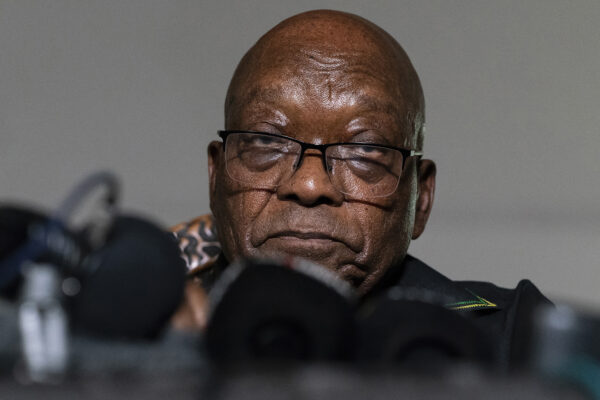
“So what the ANC government’s trying to do is say, ‘We must all get together to fix load-shedding.’ They created load-shedding! Jacob Zuma has the reputation of being the most corrupt, useless president we’ve ever had. But Cyril will be the president who let the lights go out in this country. He’s a huge failure.”
Alan Pullinger, CEO of one of South Africa’s biggest financial corporations, FirstRand, was next in line to open fire on the Ramaphosa administration.
Speaking to shareholders on March 2, he said the ANC’s open support for Russia “could have extremely negative consequences for the country, which benefits far more from trade with and investment from the USA, UK, and Europe than from Russia.”
Pullinger said some of South Africa’s major trading partners are “voicing increasing concern” about the government’s “close relationship” with Moscow.
He reminded the ANC that “the country’s banking sector, and this includes our central bank, crucially relies on access to the US dollar, global clearing and settlement, which is a privilege and can be revoked at any time. For all of these reasons, FirstRand does not share [the] government’s enthusiasm for Russia.”
Sandile Swana, a governance and risk analysis expert, said Ramaphosa’s cabinet reshuffle late on March 6 would serve only to “frustrate” citizens further.
The president retained ministers implicated in corruption and other financial crimes and added one more: A minister of electricity, tasked with ending the energy crisis, but who’s a personal friend of Ramaphosa’s, and not the electricity generation expert he’d promised earlier … and who’s also accused to awarding irregular contracts when he was a city mayor.
